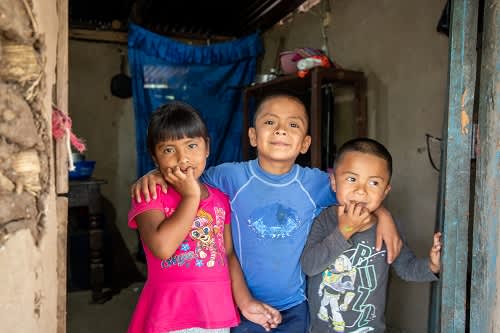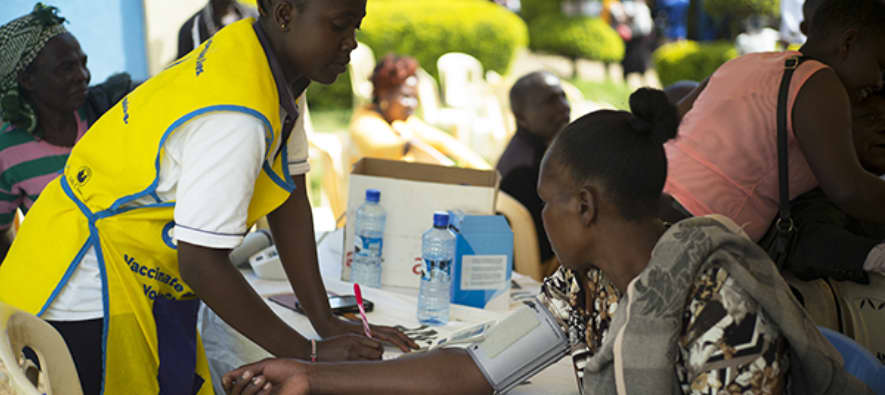Making life-transforming cancer treatments more affordable in Vietnam | Takeda Stories

Making life-transforming cancer treatments more affordable in Vietnam
This information is available to the general public for informational purposes only. It is not intended to substitute for consultation with a relevant expert or health care provider. Please consult your health care provider for advice on diagnosing or treating a health condition or disease.
“I’m afraid it’s cancer.”
These are words that no doctor ever wants to share with a patient, especially if the chances of survival are low. A cancer diagnosis triggers a flood of emotions and questions: Why me? How will I tell this to my kids? How will my brothers and sisters feel knowing I will never meet my unborn nieces and nephews?
For Quynh Hoang, an HR professional in Vietnam, similar questions went through her head when she received a cancer diagnosis in 2015. But the experience of going through cancer treatment also motivated her to pivot to a career in the pharmaceutical industry, to play her part in improving the ability of Vietnam’s health care system to support other cancer patients.
“Fortunately, thanks to proper diagnosis and effective treatment, I overcame the disease,” Quynh said. “Sometimes I forget I was once a patient living with cancer. However, not all patients are lucky as they are misdiagnosed and lack access to timely diagnoses and disease management options. Early access to approved treatments is essential.”
While Vietnam’s health care system has made great strides, patients still face significant barriers to accessing innovative medicines and vaccines due to a lack of resources as well as gaps in diagnostic capabilities and disease awareness.1
In 2018, Quynh joined our new team in Vietnam to contribute in her way to accelerating access to life-changing medicines.
“Although we are quite a young team, we have already had important successes in increasing patient awareness of complex and rare diseases, giving new possibilities and ongoing patient support.”
Specifically, the team in Vietnam is tackling one of the most pressing challenges to health care access: affordability. Vietnam has high rates of out-of-pocket health care spending2 , which puts life-changing medicines and treatments out of reach for many, particularly for patients with cancer.
To illustrate further, studies have found that 10% of Vietnamese households in 2016 faced ‘catastrophic’ health care expenditures, with out-of-pocket health care expenditure accounting for roughly 40% of household income. Yet, this percentage jumps to an astounding 65% when looking at households with cancer patients3. The historical lack of affordable treatment has led to high rates of treatment abandonment, undermining positive patient outcomes from available medicines4 .
Having operated in the Vietnamese market for years and having worked on several initiatives to strengthen the country’s health care system and sustainably expand access to health care, we realized that we had to mobilize a more targeted intervention to address affordability barriers.
Takeda’s Patient Assistance Programs, launched at a global level in 2017, provide financial assistance for eligible patients who would otherwise be unable to afford the treatment they need. We do this by considering each patient’s unique financial circumstances, working closely with partners, insurers, and governments, to provide tailored and flexible financial support.
Partnering with the Vietnamese government, and in collaboration with a wide range of stakeholders and local partners, including hospitals and practitioners, we launched Vietnam’s first affordability-based Patient Assistance Program (PAP) in 2022, enabling more patients living with cancer and rare diseases to access timely and life-transforming treatments for the duration of therapy.
Dr. Bach Quoc Khanh, President of the National Institute of Hematology and Blood Transfusion, one of many people involved in the implementation of the program, notes, “The [PAP] will help more patients have access to new medicines and efficient targeted therapy and improve the overall quality of treatment in Vietnam. We hope that relevant parties involved in the program will continue to drive awareness and support patients with prompt treatment, so that they will receive the optimal results.”
Vietnam’s first PAP is a proud milestone for our company, and one that will bring tangible options to many cancer patients and their families, but it is only a step on the path towards ensuring sustainable and equitable access to medicines in the country.
As Quynh puts it, “We are motivated to try harder every day and seek to help as many patients as possible unlock access to medicines and life-transforming treatments.”
To learn more about our PAPs and read our latest Progress Report, visit the Access to Medicines page.
Share this story



